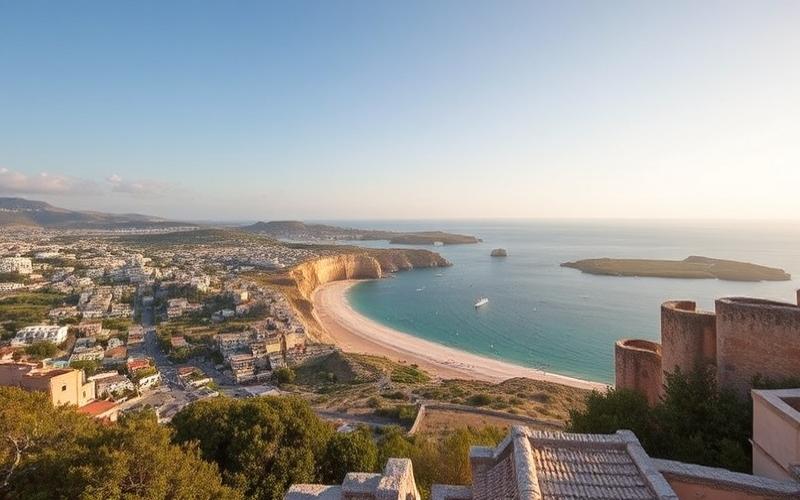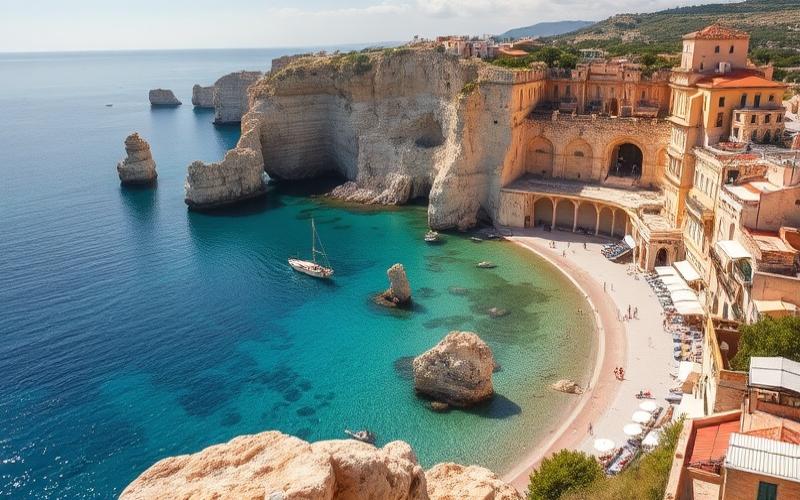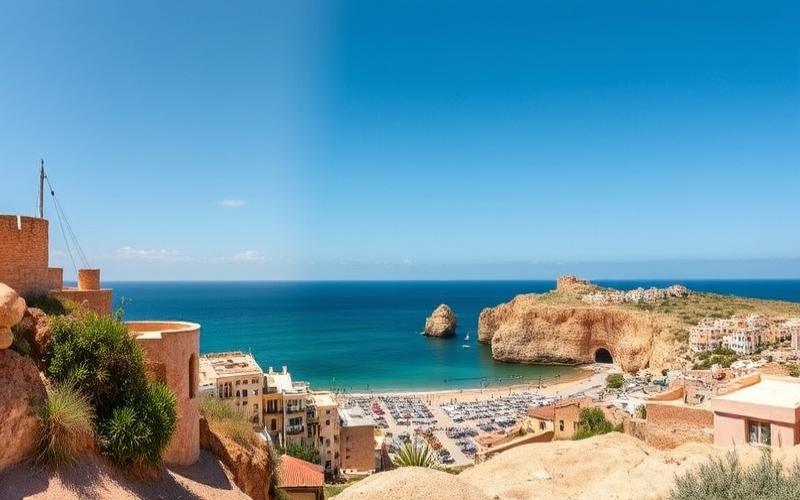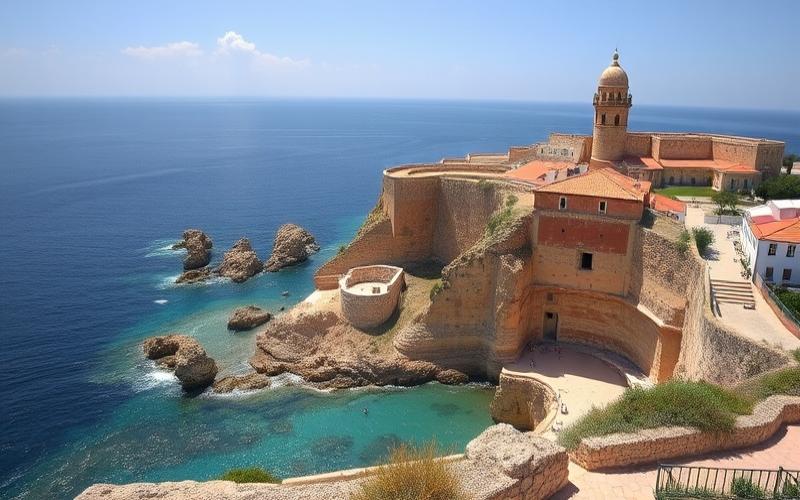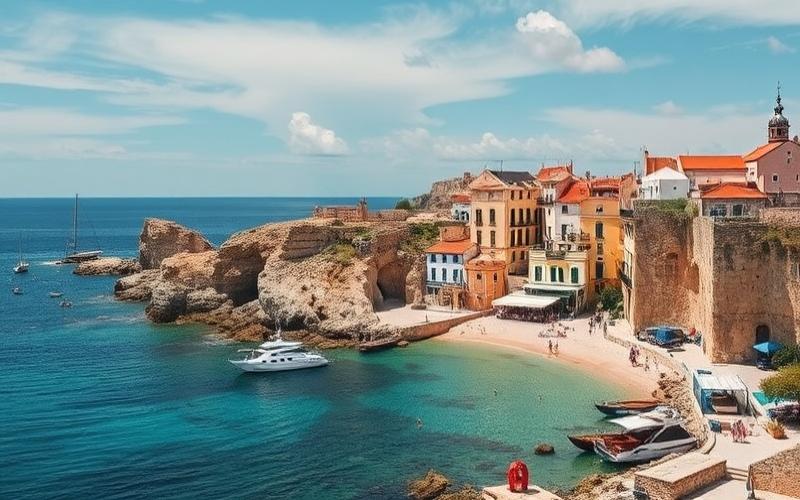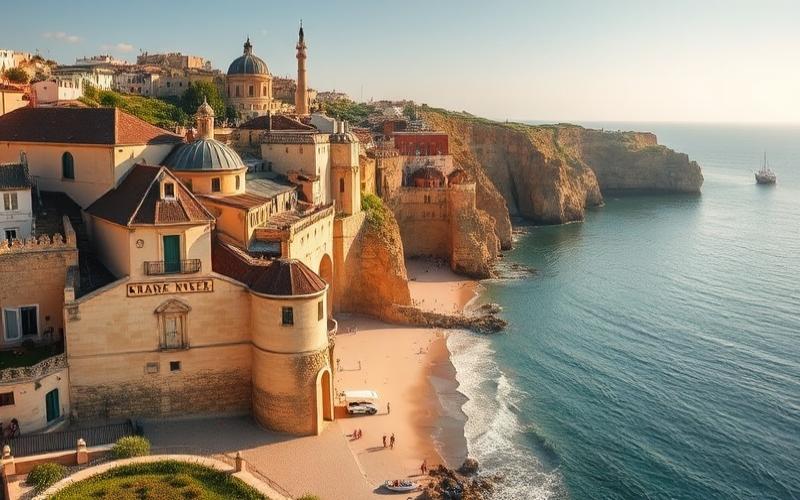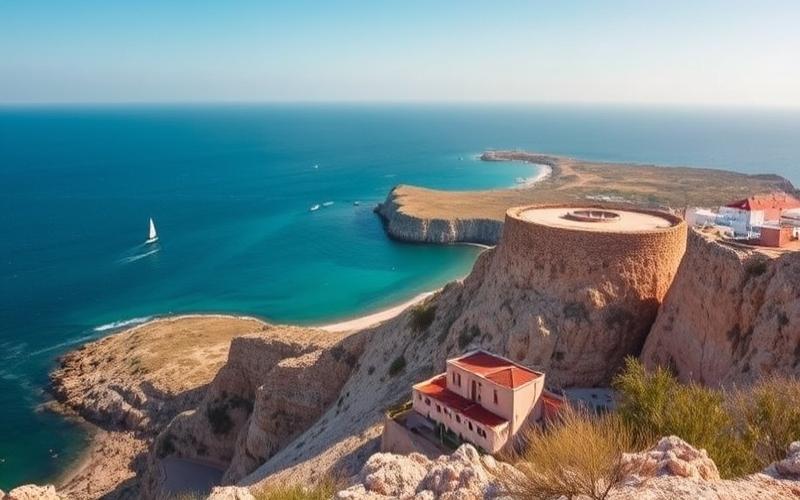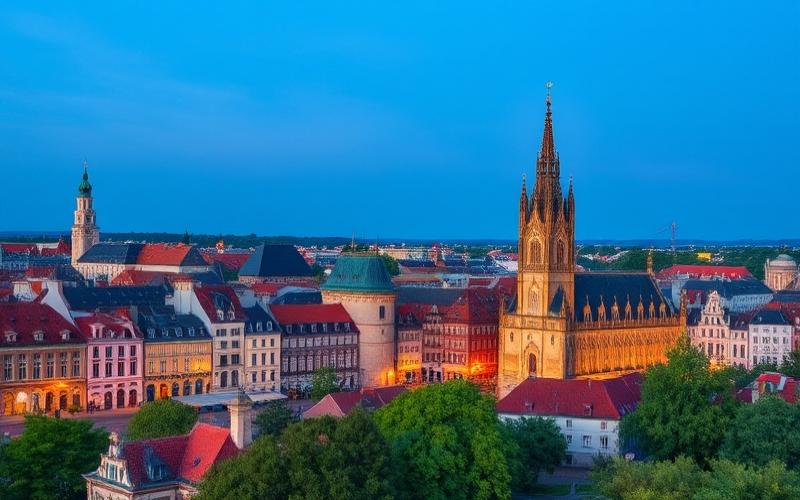
 Published on and written by Cyril Jarnias
Published on and written by Cyril Jarnias
Maltese cuisine is a true Mediterranean treasure, reflecting the diverse influences that have shaped the archipelago’s history and culture over the centuries. For newly arrived expatriates in Malta, exploring the local cuisine is an excellent way to immerse yourself in the country’s culture and discover its unique flavors. This guide will take you on a journey through Maltese specialties, from traditional markets to iconic restaurants, including contemporary culinary trends.
Must-Try Maltese Specialties
Maltese cuisine is a skillful blend of Mediterranean influences, with Italian, Arabic, and British touches. Here are some iconic dishes every expatriate should taste:
Pastizzi: These small flaky pastries filled with ricotta or mushy peas are the ultimate Maltese snack. You can find them in numerous pastizzerias across the island.
Stuffat tal-fenek: Considered Malta’s national dish, this rabbit stew slow-cooked in red wine is a staple of local gastronomy.
Lampuki pie: This fish pie (typically made with mahi-mahi) is a beloved traditional dish, especially in autumn when lampuki is in season.
Gbejniet: This small goat or sheep cheese is enjoyed fresh, dried, or marinated in vinegar and black pepper.
Ftira: This traditional flatbread is often topped with tomatoes, olives, capers, and anchovies to make a flavorful sandwich.
Good to Know:
Maltese cuisine prioritizes fresh, seasonal products. Don’t hesitate to ask for the daily specials in traditional restaurants to discover new flavors.
Food Markets: Immersion in Local Culture
To truly soak up Maltese culinary culture, nothing beats a visit to the local markets. Here are some of the most renowned ones:
Marsaxlokk Sunday Fish Market: This Sunday fish market is a true institution. It’s the perfect place to buy fresh fish and discover local varieties.
Is-Suq tal-Belt (Valletta Market): Located in a historic building in the heart of Valletta, this covered market offers a wide variety of local and international products.
Ta’ Qali Farmers Market: This weekly farmers’ market is the perfect place to buy fresh fruits and vegetables directly from local producers.
Birgu Market: This picturesque market in the old town of Birgu offers a lovely selection of local products in a historic setting.
- Remember to bring your own reusable bags for shopping
- Don’t hesitate to ask vendors for advice on how to prepare local products
- Arrive early to get the best products, especially at fish markets
Good to Know:
Markets are not only great places to shop but also to observe local life and practice your Maltese. A simple “Grazzi” (thank you) will always be appreciated by the merchants.
Traditional Restaurants to Discover
To taste the best Maltese specialties in an authentic atmosphere, here’s a selection of traditional restaurants not to miss:
Rubino (Valletta): Housed in a former confectionery, this restaurant offers refined Maltese cuisine in an elegant setting.
Ta’ Marija (Mosta): Known for its folk evenings, this restaurant offers a genuine immersion in Maltese culture.
Ta’ Kris (Sliema): Located in a former bakery, this family restaurant serves generous Maltese dishes in a warm atmosphere.
Gululu (St Julian’s): Specializing in Maltese cuisine, this restaurant offers a varied menu of traditional dishes in a relaxed setting.
Diar il-Bniet (Dingli): This family restaurant uses products from its own farm to prepare authentic Maltese dishes.
Good to Know:
In many traditional restaurants, sharing dishes is common. Feel free to order multiple dishes to taste them as a group.
Contemporary Culinary Trends in Malta
Although traditional cuisine remains very popular, Malta is also experiencing an evolution in its food scene with the emergence of more contemporary and innovative restaurants. Here are some trends to follow:
Mediterranean Fusion: Many Maltese chefs are reinventing traditional recipes by adding modern touches and influences from other Mediterranean cuisines.
Vegetarian and Vegan Cuisine: With growing awareness of health and environmental issues, more and more restaurants are offering creative vegetarian and vegan options.
Farm-to-Table: The farm-to-table movement is gaining popularity, with restaurants emphasizing the use of local, seasonal products.
Fine Dining: Malta now boasts several Michelin-starred restaurants, showcasing the evolution of its culinary scene.
- Noni (Valletta): One Michelin star for its creative Mediterranean cuisine
- Under Grain (Valletta): One Michelin star for its refined cuisine in an elegant setting
- ION – The Harbour (Valletta): One Michelin star for its innovative cuisine with views of the Grand Harbour
Good to Know:
Despite these evolutions, Maltese cuisine remains deeply rooted in its traditions. Even in the most innovative restaurants, you’ll often find nods to traditional flavors and techniques.
Table Etiquette: Tips for Expatriates
Understanding local mealtime etiquette is essential for integration and avoiding cultural faux pas. Here are some tips depending on the context:
Meals with Family or Friends: – Meals are often moments of conviviality and can last several hours. – It’s common to bring a small gift, like wine or dessert, when invited to someone’s home. – Wait for the host to start eating before beginning your meal.
Business Meals: – Business lunches are common and can be quite informal. – Avoid discussing business immediately; take time to chat about lighter topics first. – It’s generally acceptable to have a glass of wine during a business lunch, but moderate your consumption.
Formal Meals: – Arrive on time or slightly late (5-10 minutes maximum). – Use utensils from the outside in. – Keep your hands visible on the table, but not your elbows.
Good to Know:
Maltese people generally appreciate punctuality but may be more flexible during social events. When in doubt, it’s better to arrive at the agreed time.
Finding International Ingredients in Malta
Although local cuisine is delicious, expatriates may sometimes crave cooking dishes from their home countries. Here are some tips for finding international ingredients in Malta:
Supermarkets: Major chains like Lidl, Pavi, and Scotts offer an increasing selection of international products.
Specialty Grocery Stores: – The Wembley Store (Ta’ Xbiex): Specializes in British products – Meats and Eats (Birkirkara): Offers a wide range of meats and international products – Asia Market (Gzira): For Asian ingredients
Ethnic Markets: The Marsa area hosts several grocery stores and markets offering Middle Eastern and African products.
Online Orders: Websites like iShopMalta allow you to order international products that are hard to find locally.
- Don’t hesitate to ask other expatriates for their good addresses for finding specific products
- Some products may be more expensive than elsewhere, remember to compare prices
- Be open to using local ingredients as substitutes in your recipes
Good to Know:
The expatriate community in Malta is very active. Joining expatriate Facebook groups can be an excellent way to get advice on where to find specific products.
In conclusion, discovering Maltese cuisine is an exciting adventure for any expatriate. By opening yourself to local flavors while maintaining a connection with your home cuisine, you’ll significantly enrich your expatriate experience in Malta. Remember that food is an excellent way to build connections with the local population and better understand Maltese culture as a whole.
Disclaimer: The information provided on this website is for informational purposes only and does not constitute financial, legal, or professional advice. We encourage you to consult qualified experts before making any investment, real estate, or expatriation decisions. Although we strive to maintain up-to-date and accurate information, we do not guarantee the completeness, accuracy, or timeliness of the proposed content. As investment and expatriation involve risks, we disclaim any liability for potential losses or damages arising from the use of this site. Your use of this site confirms your acceptance of these terms and your understanding of the associated risks.





